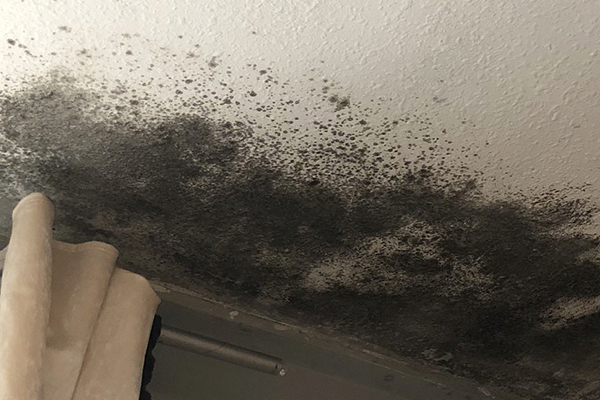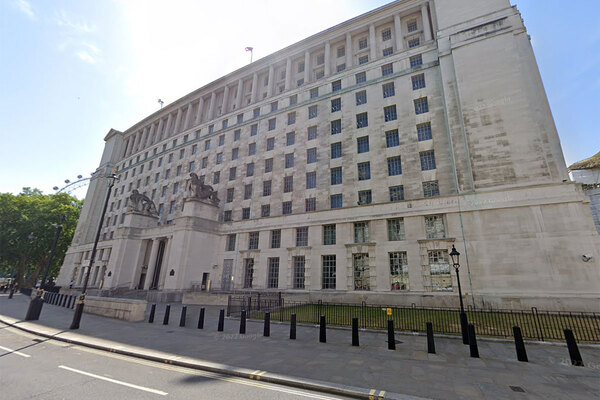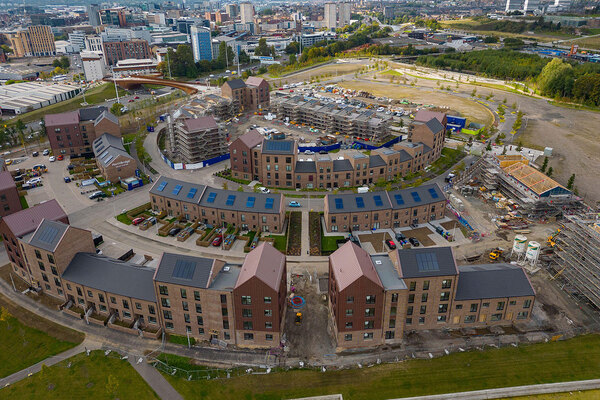You are viewing 1 of your 1 free articles
Giant council landlord has received 15,000 damp or mould complaints in past five years
One of the country’s largest council landlords has faced 15,000 complaints about damp and mould in the past five years, and more than a third of its properties do not meet the Decent Homes Standard.

Birmingham City Council, which owns 62,000 council homes and is one of the largest social landlords in the UK, will hold a debate today after the figures were presented by opposition councillors.
Conservative councillors Ken Wood and Adrian Delaney, who submitted the motion, said there have been 15,000 complaints about damp or mould in council homes the past five years, while 39% of homes do not meet the Decent Homes Standard.
They said that they have “no confidence” in the executive’s management of repairs and maintenance and that the current administration has “let tenants in this city down and failed in [its] legal and moral duties as landlord”.
The motion follows housing secretary Michael Gove recently naming and shaming Birmingham City Council for its complaint-handling.
Mr Gove, who also named Lambeth Council and Orbit, said that the three landlords failed their tenants, “letting people suffer in disgraceful conditions while refusing to listen to complaints or treat them with respect”.
The Housing Ombudsman launched a wider investigation into Birmingham in July, to understand whether there are systemic issues at the local authority with regard to complaints and compensation.
The watchdog announced the investigation as it published a report that found severe maladministration in the council’s response to repairing an extensive water leak outside one leaseholder’s home.
The motion said there have been a number of high-profile media stories about tenants living in “squalid or unsafe conditions, including people being hospitalised due to damp”.
It said there are 9,000 properties in Birmingham that have one or more key components – such as doors, windows or central heating systems – that need replacing or significant repair.
It also said that 68% of council homes have an Energy Performance Certificate (EPC) rating of D or below, compared to 44% of social housing stock nationally.
As a result of the issues raised, Mr Wood and Mr Delaney asked that the council’s housing department refocus its core purpose, “which should be to provide decent, safe homes for those who can’t afford the market” rate.
The councillors asked that the local authority carry out an in-depth stock condition survey of all council homes.
Echoing the Better Social Housing Review, they urged the council to work with tenants, partners and scrutiny bodies to develop and apply a “clear standard” of what an excellent repairs and maintenance service looks like.
The councillors urged the local authority to ensure that tenants have a “genuine and effective” voice at all levels of decision-making. They also said the council should also review contract management arrangements for repairs and maintenance to include physical inspection and audits of repairs carried out.
They asked that the council commits to a target of 99% compliance with the Decent Homes Standard by 2026.
A council spokesperson said that Birmingham is the largest local authority social landlord in the country and is responsible for more than 60,000 properties.
“We have over 250,000 repair requests each year and last year we received 3,200 requests about mould and damp. This accounts for approximately 1.2% of all complaints,” the spokesperson said.
“However, we recognise this is too high so all requests regarding damp and mould are now dealt with as a matter of priority by our contractors and we are producing a housing leaflet going out to all tenants telling them how they can treat damp and mould and keep it at bay.”
Sign up for our asset management newsletter
Already have an account? Click here to manage your newsletters











